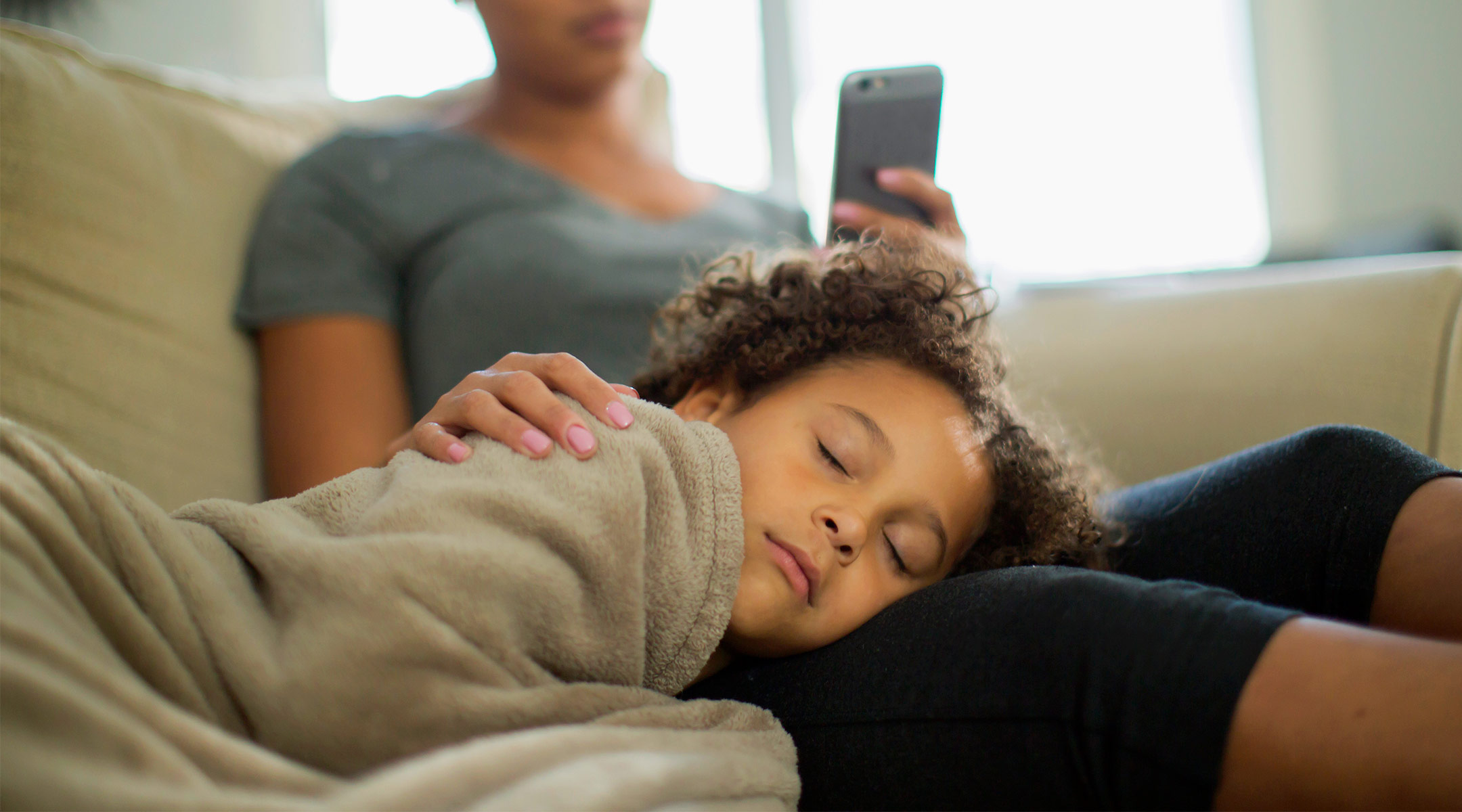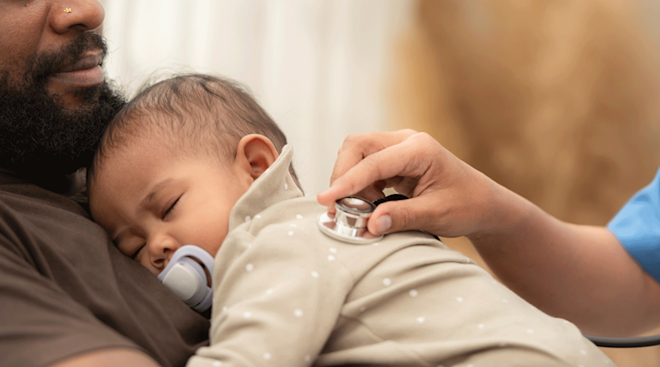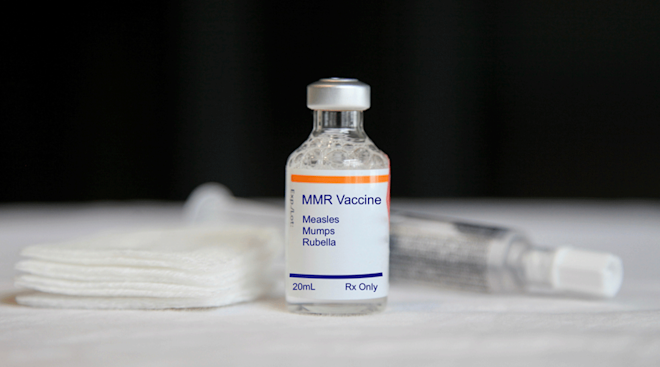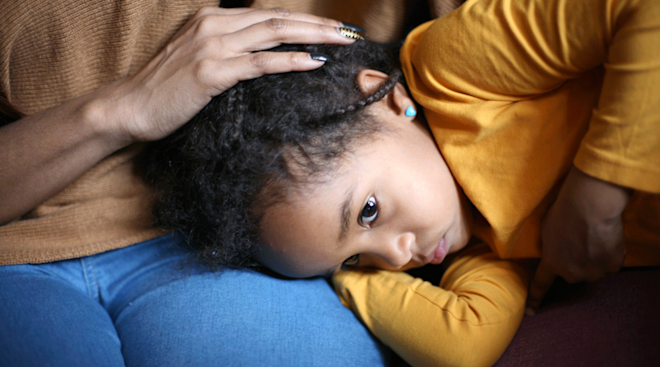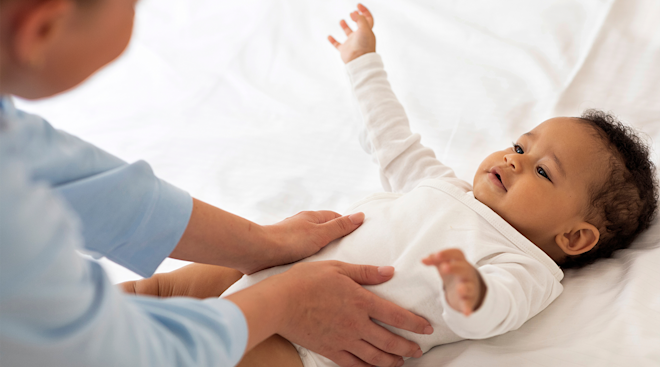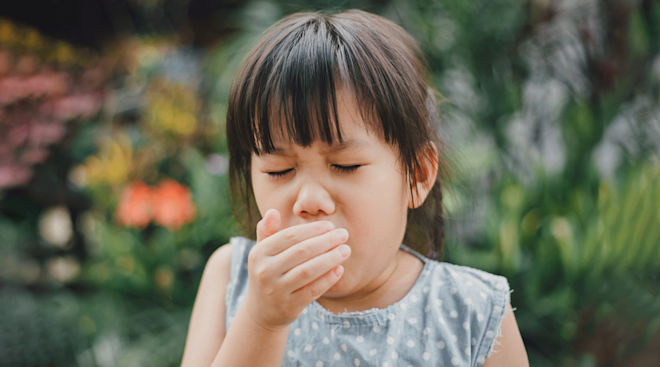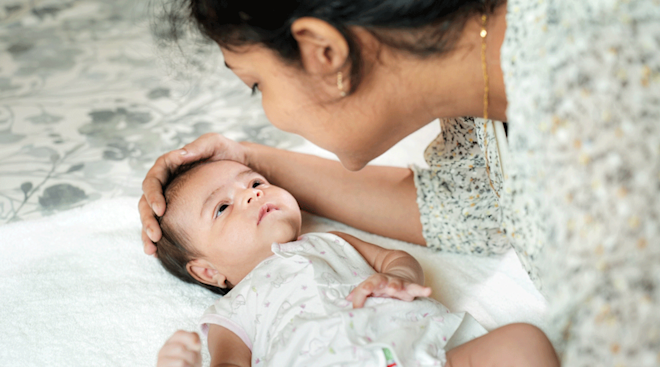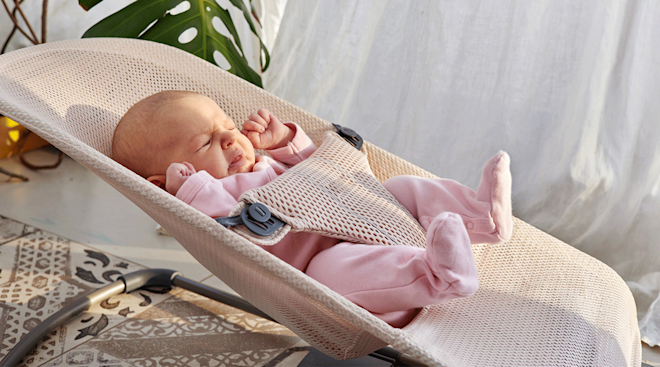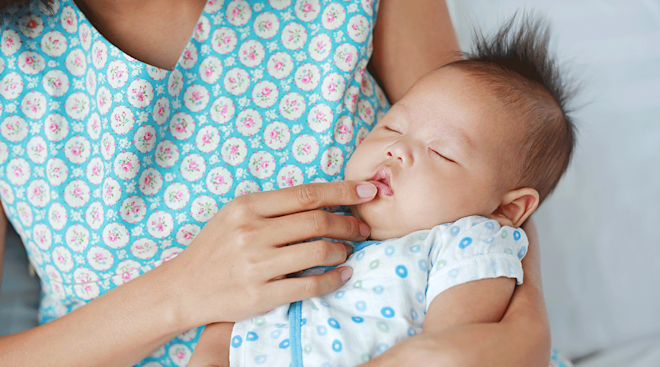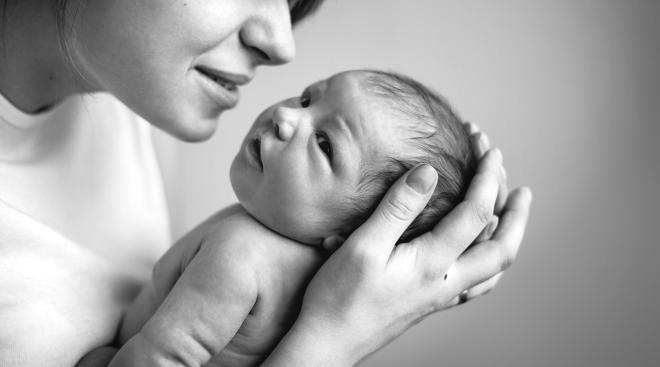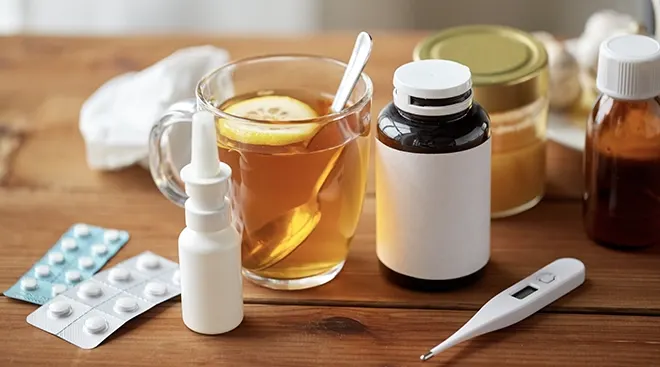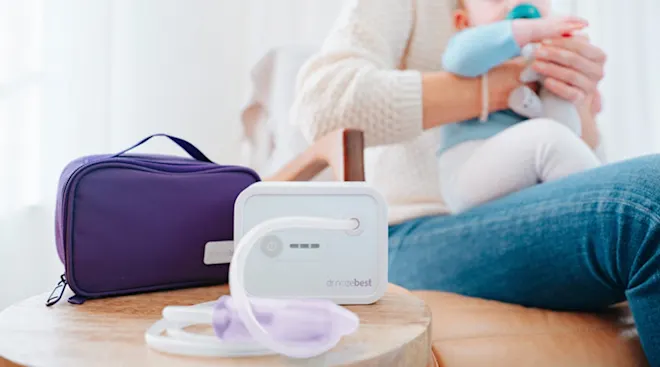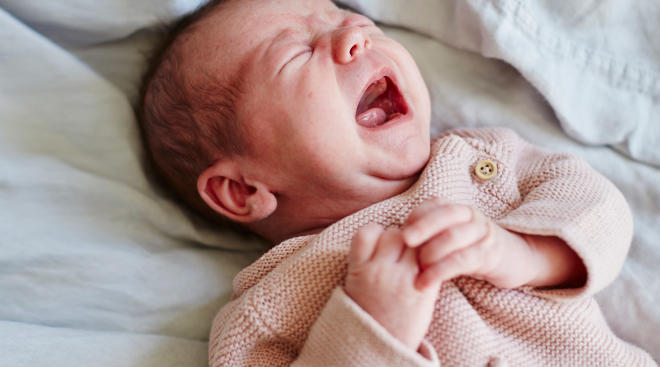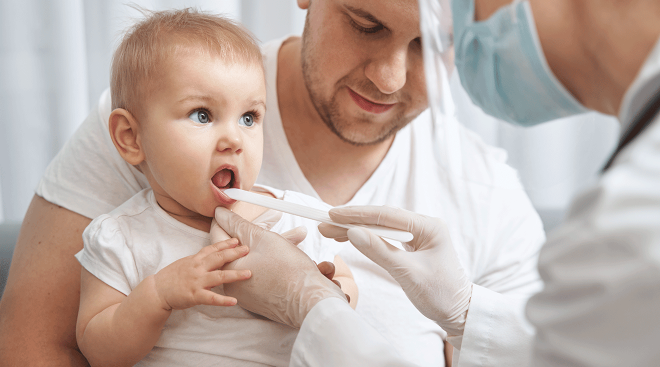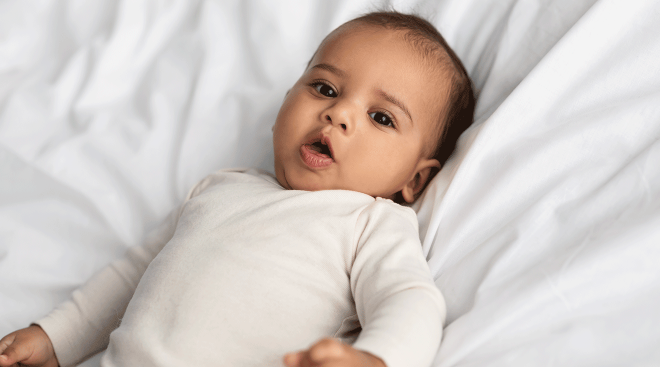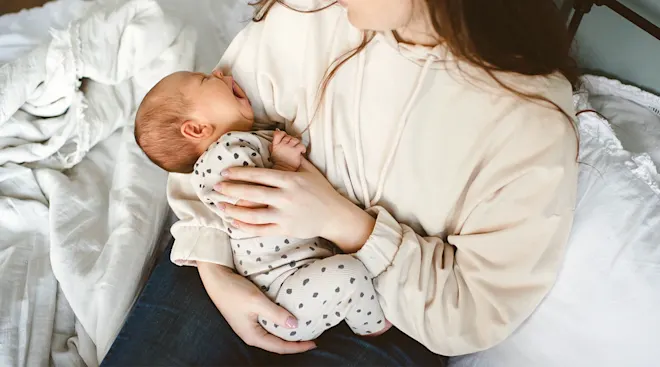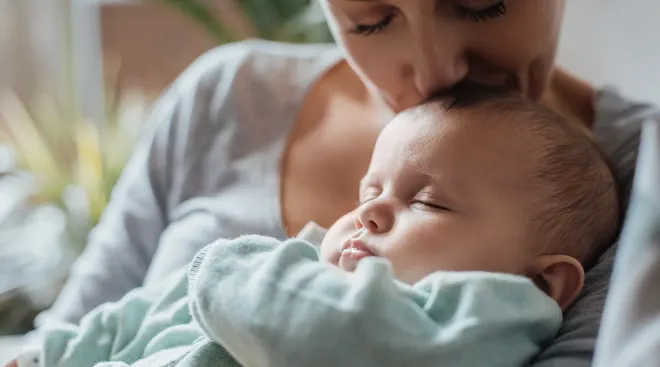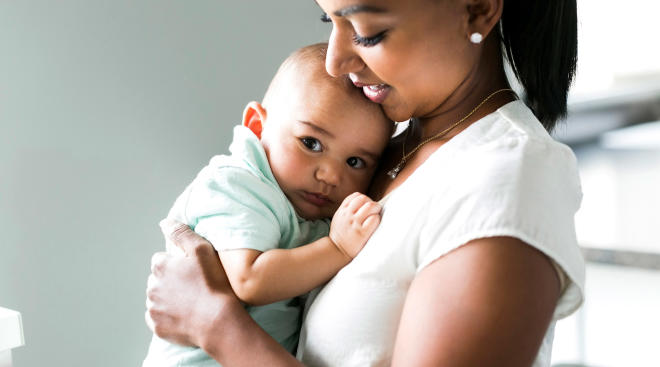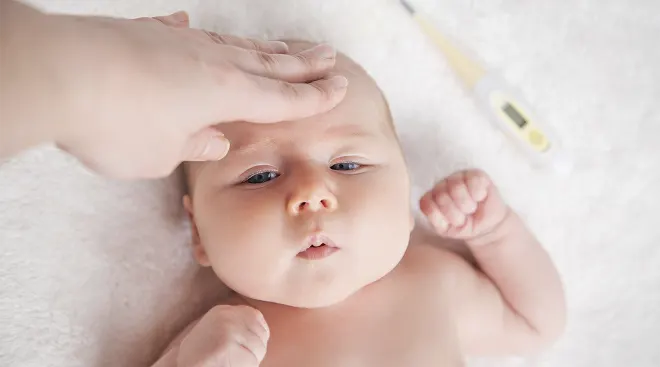The Stomach Bug: Doctors Weigh in on What It Is and How to Treat It
As pediatricians, the stomach bug is one of the top calls we receive from worried parents. Here’s the lowdown on what causes a stomach bug, the symptoms to look out for, how to treat and even prevent it, plus when you should call your child’s pediatrician.
Kids with the stomach bug can often have:
- Nausea and vomiting: We’re talking forcefully emptying the stomach contents—not just a little spit up—a few to multiple times. Many times children will vomit for 12 to 24 hours, but if vomiting persists beyond 24 hours, your little one should see their pediatrician.
- Stomach upset: They may experience stomach pain or cramps.
- Diarrhea: This would be classified as two or more watery or loose stools. Diarrhea can often occur along with the vomiting or may follow the vomiting and can last as long as five to seven days.
These are the most common causes of vomiting and diarrhea:
- Viral infections. The most common cause of vomiting and diarrhea is from a virus, such as the rotavirus or norovirus. Symptoms usually begin with vomiting, followed by diarrhea within 12 to 24 hours.
- Bacterial infections. Bacterial infections can also lead to stomach bugs. Some infections such as E. coli, Salmonella and Shigella are associated with blood in the stool, along with vomiting, diarrhea and abdominal pain. Despite stemming from a bacteria, most of the time these infections go away on their own and don’t require antibiotics. If your child has signs of a bacterial infection, your pediatrician may ask for a stool sample to send to the laboratory to confirm.
- Food poisoning. This occurs because of toxins from germs and results in the sudden onset of vomiting and diarrhea after eating bad food.
- Traveler’s diarrhea. If your family recently got back from a trip abroad and your child is now experiencing stomach upset and diarrhea, the illness may be caused by germs that were in something your child ate or drank. Make sure to tell your child’s pediatrician where you were traveling.
If your child is vomiting and having diarrhea, your pediatrician may suggest giving them an oral rehydration solution, such as Pedialyte, which replaces electrolytes and fluid lost with diarrhea and helps prevent dehydration. It’s not recommended to give your child just water. Coconut water, sports drinks (like Gatorade) or diluted apple or white grape juices are all fine alternatives to Pedialyte. You should offer the electrolyte solution a little bit at a time, especially if your kiddo is vomiting. For example, start by giving one teaspoon or a medicine dropper of fluids every 5 to 10 minutes, gradually increasing the amount based on how much your child can tolerate. If your child drinks too much at once, it might be too much to handle and they’ll just vomit back up.
Once your kiddo can keep fluids down, start offering simple, bland foods, such as crackers, applesauce and rice. If they don’t want solid foods, don’t force it. Kids may not eat solids well during the first few days of the illness, which is fine—they can actually go a few days without eating solid foods. The important thing is that they drink fluids and have an adequate number of wet diapers; if they don’t drink enough, they can become dehydrated.
Babies with mild diarrhea can continue to breast- and formula-feed as usual. You don’t normally have to change formulas to, say, a lactose-free formula. But if you notice your child’s normal formula (which is often cow’s milk–based and contains lactose) or your breast milk (lactose is also in breast milk) is making the diarrhea worse, talk to your pediatrician about temporarily switching to a lactose-free formula (or, if your child is older than a year old, soy- or lactose-free milk) until your child’s symptoms have resolved.
Should I Give My Child Medication or Supplements?
Giving your child antidiarrheal medications, such as loperamide (Imodium), isn’t recommended, but offering probiotics containing Lactobacillus GG may be helpful and has been shown to shorten the course of mild to moderate diarrhea by one day. Most of the time, even if bacteria is behind the stomach bug, antibiotic therapy isn’t called for or even helpful, since the majority of infections will resolve on their own. Antibiotics also often have their own set of side effects and can possibly make stomach bug symptoms worse.
You should speak to your pediatrician if your child’s diarrhea has blood in the stool or lasts more than five to seven days, or if your child has persistent vomiting for more than 24 hours, fever, a swollen (distended) stomach, is in pain when their stomach is touched or if there are any signs of dehydration (such as not urinating every 6 to 8 hours or at least three times a day, no tears when they cry, dry lips and mouth, a sunken fontanelle or if they’re very sleepy). You should also call your pediatrician if you or your child recently returned from international travel, or if your child has other chronic medical illnesses. Your pediatrician will discuss with you how to best keep your little one hydrated.
Your best bet for stomach bug prevention is to wash hands often with soap and warm water. Hand sanitizers may not effectively kill germs. If you or your child gets a stomach bug, washing hands often will also help prevent the infection from spreading throughout your house. Don’t prepare or share food with anyone in the household who is sick. When it comes to cleaning up vomit and diarrhea, using bleach immediately is the best way to kill the virus. Remember to wash linens, bed sheets and other laundry on the longest washer setting possible using the warmest temperature. Don’t shake the laundry before washing to limit the likelihood of the virus spreading to other areas of the house.
Please note: The Bump and the materials and information it contains are not intended to, and do not constitute, medical or other health advice or diagnosis and should not be used as such. You should always consult with a qualified physician or health professional about your specific circumstances.
Plus, more from The Bump:
Dina DiMaggio, MD, and Anthony F. Porto, MD, MPH, are official spokespeople for the American Academy of Pediatrics and the co-authors of The Pediatrician’s Guide to Feeding Babies and Toddlers. They write about the latest AAP guidelines, studies and seasonal issues affecting babies and toddlers. Follow them on Instagram @pediatriciansguide.*
Learn how we ensure the accuracy of our content through our editorial and medical review process.
Navigate forward to interact with the calendar and select a date. Press the question mark key to get the keyboard shortcuts for changing dates.
































